

Centre for Climate and Society Annual Conference
Climate Justice Across Generations
The fourth annual DCU Centre for Climate and Society conference took place on 16 April 2024 in The Helix on the DCU Glasnevin Campus, and featured keynote contributions from Mary Robinson, Former President of Ireland and Chair of The Elders, participants in Ireland’s Children and Young People’s Assembly on Biodiversity Loss, and Ella Saltmarshe, co-founder of The Long Time Project.
The climate crisis raises deep and complex questions of justice, within and across national borders and between generations. As we face into a very unequal and unjust future, the conference examined how the worlds of media, politics and policy, activism, and business can address urgent calls for climate justice to address the many inequities generated by the climate crisis.
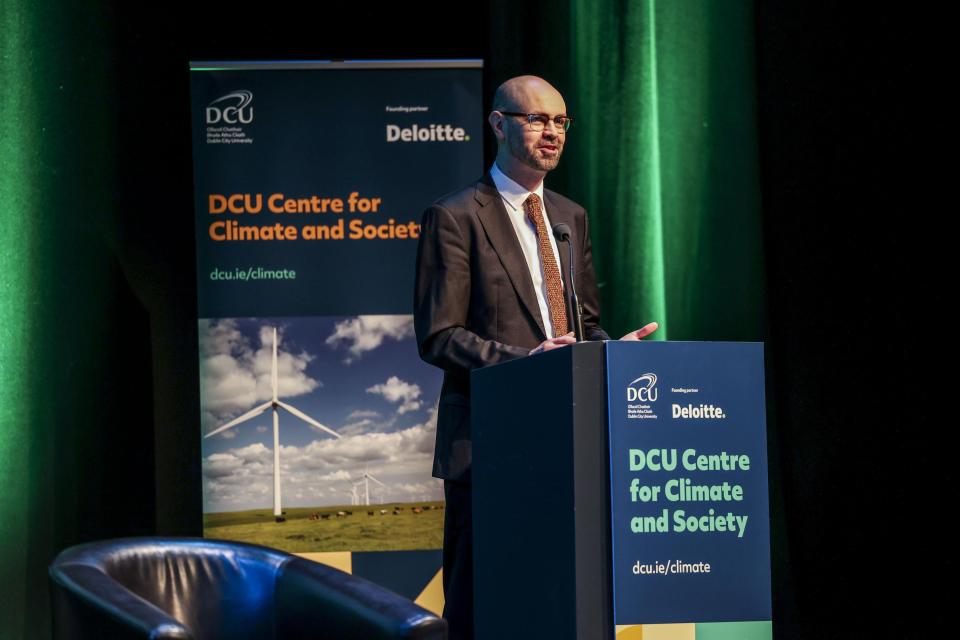
Dr Diarmuid Torney, Director of the DCU Centre for Climate and Society
Dr Diarmuid Torney, Director of the DCU Centre for Climate and Society and Associate Professor, DCU School of Law and Government, welcomed the audience to the fourth annual Centre conference. He said that there was increasing awareness of the dire impacts of climate change, “but a yawning gap between what we are collectively doing and what we know needs to be done”. Highlighting the conference focus on climate justice across the generations, Dr Torney added that the aim was to start new conversations about the many inequities that characterise the climate and biodiversity emergencies, and our responses to them. He added that focussing on climate justice between generations is particularly timely as it raises an important question: “How can we deliver a better present as well as safeguarding the future”.
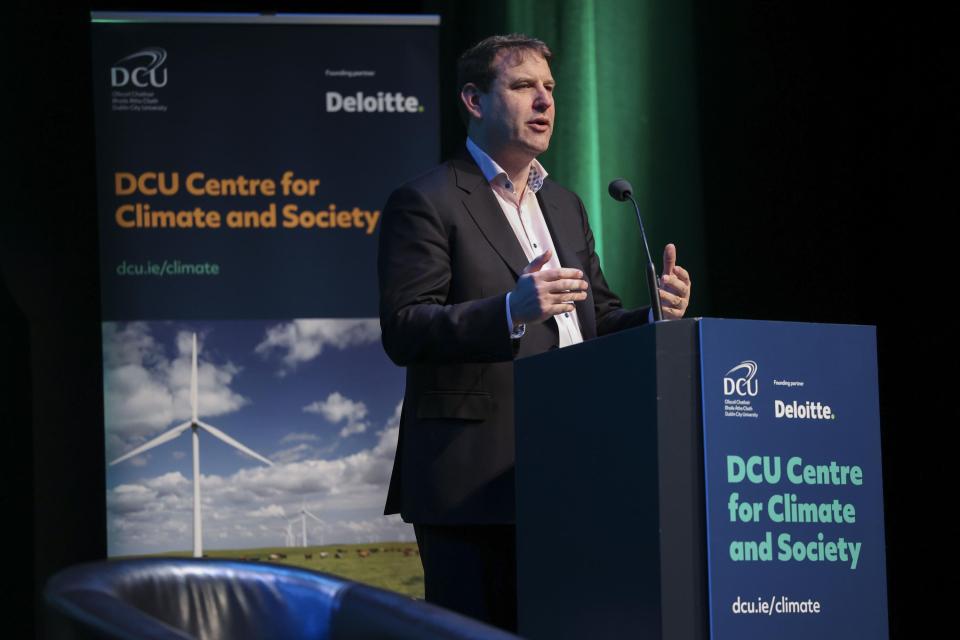
Glenn Gillard, Sustainability Market Lead, Deloitte Ireland
Glenn Gillard, Sustainability Market Lead, Deloitte Ireland, spoke about the centrality of dialogue in achieving a just transition, the role of the business sector in driving systemic change, and the need for collaboration across the public and private sectors. However, he noted that there were now new challenges for business, particularly in terms of changing priorities in the boardroom. As a result, he said it was crucial that the business sector maintain a strong focus on sustainability. He added that young people were key to this as they "make business look beyond the bottom line".
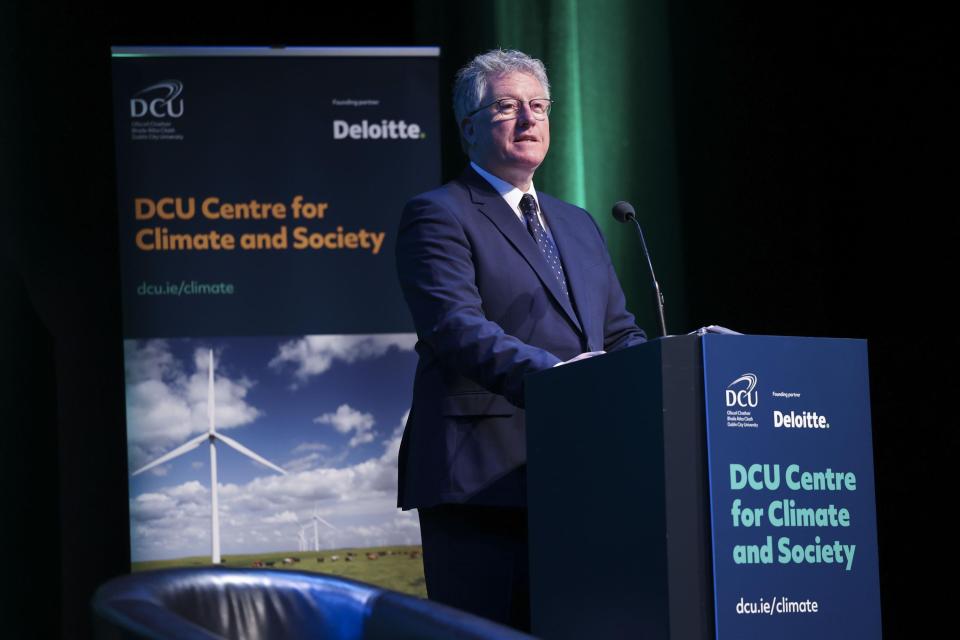
Professor Daire Keogh, President of DCU
Introducing the first key speaker of the day, Professor Daire Keogh, President of DCU, spoke of the need for new conversations and for greater awareness of our common purpose in tackling climate change. He began by highlighting the escalating warning signs of the climate crisis. He said "Our planet is literally on fire. Global temperature records are being broken month by month. But it’s not just the normal patterns of our climate that are being disrupted, generational patterns and norms are changing too". He added that while none of us can hide from climate change there is hope that the conversations we have today will help to create common purpose across the generations. Professor Keogh also spoke about the role of universities in helping to impact students and transform lives and society.
Keynote Address - May Robinson
The recording of the keynote address by Mary Robinson can be viewed here.
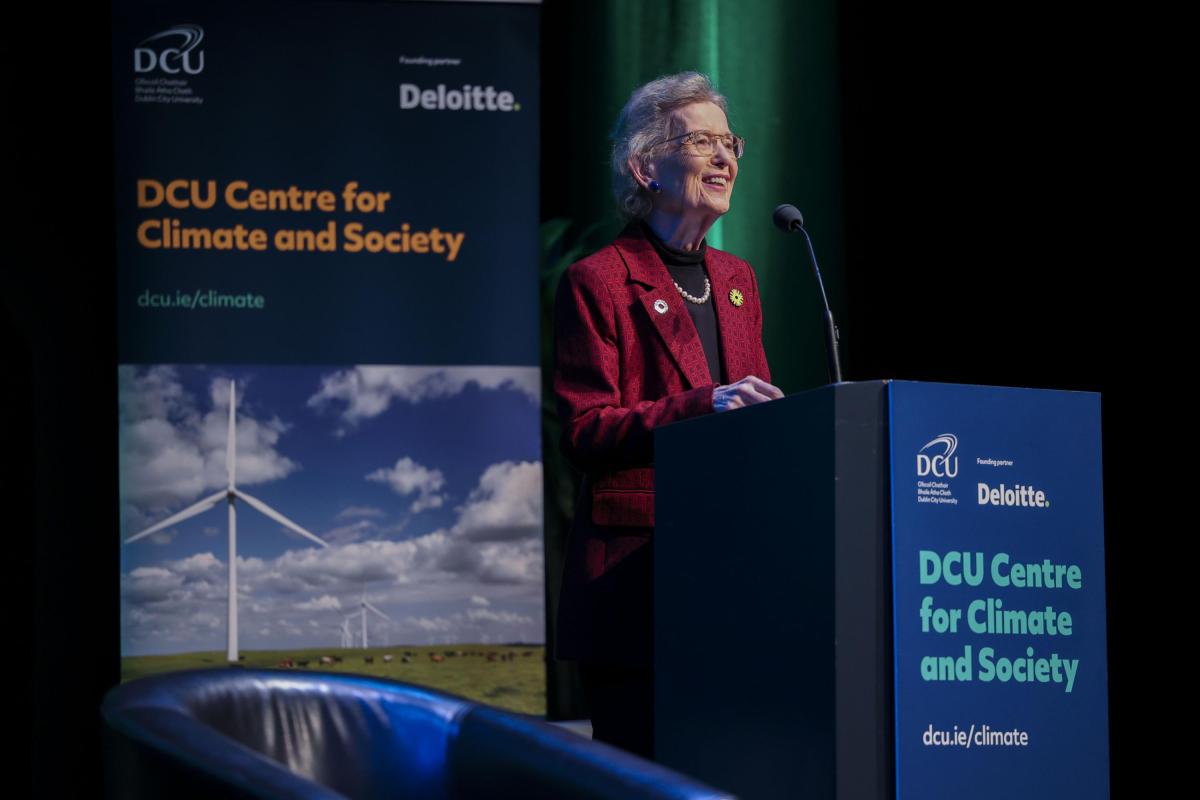
Mary Robinson, Former President of Ireland and Chair of The Elders, began her keynote address by explaining her interest in climate justice and sharing her experiences with different forms of injustice as part of her work with The Elders. She spoke about five types of climate injustice, including racial injustice, as she highlighted that people of colour experience climate impacts sooner or more acutely. She argued that the focus on long-term thinking was essential to address climate (in)justices. She said “Long-view leadership tries to address existential threats. We need thoughtful, mature thinking in order to deal with the new threats we face. The climate and nature crisis, the pandemic, and nuclear threats, these all require long-term thinking.”
Mary Robinson also spoke of Project Dandelion, a new women-led global campaign for climate justice which aims to draw attention to how the climate crisis disproportionately impacts women and girls. A major focus of the initiative is the need to reach beyond the climate community in order to drive more urgency around the climate crisis and bring more people together. Building on this, she said we need a symbol so that we can identify allies and counter the huge amount of funding that is spent on undermining climate action. "Symbols are powerful… they have a life of their own… we need a symbol that will unite us to combat the fossil fuel industry".
She also spoke about the challenges of finding funding for Project Dandelion and the need for philanthropy to prioritise climate. However, she noted that we currently lack a vision for the role of philanthropy and that a lot of corporates don’t see themselves in climate.
She concluded with a call to bring more urgency to climate action. She said "We are on the cusp of a clean energy, safer, fairer world, but we are not moving fast enough". However, she added that through connection we could move faster. Reflecting on the task ahead, she ended her talk with a favourite quote from Kofi Annan "You are never too young to lead, and you are never too old to learn".
Panel 1 – How can policy address long-term climate inequities in Ireland and beyond?
The recording of Panel 1 can be viewed here. The panel was chaired by Dr Ross Carroll, Centre member and Assistant Professor in Political Science, DCU School of Law and Government.
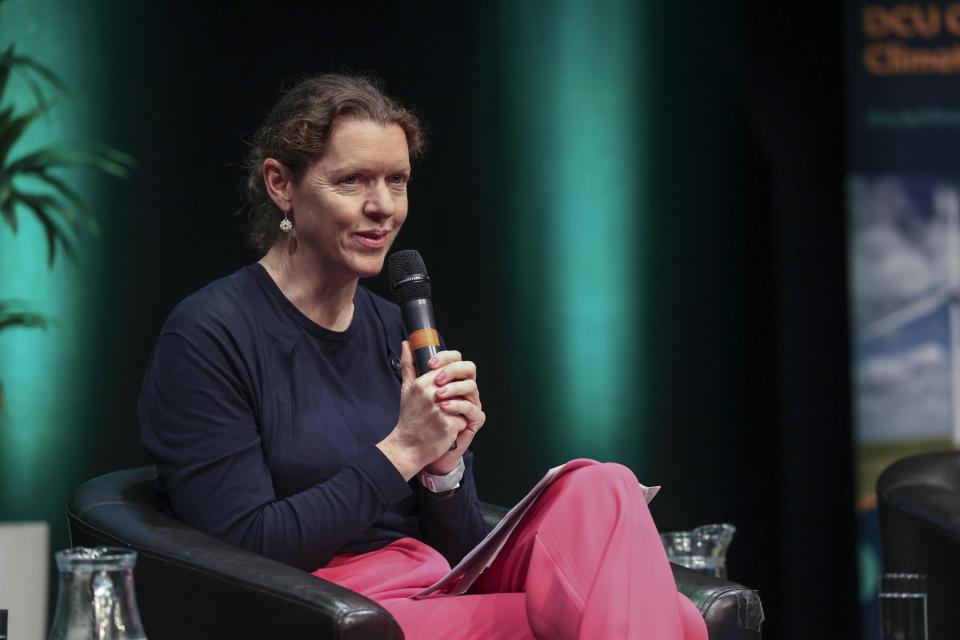
Dr Sinead Walsh, Department of Foreign Affairs
Dr Sinead Walsh, Climate Director, Ireland’s Department of Foreign Affairs, spoke about the ways that the Department does policy related to climate justice at the annual UNFCCC meetings. She highlighted that they focus on those most in need. However, she stressed that "climate justice is really in the eye of the beholder" and that this is an area of significant tension at the international climate negotiations. She said that "Climate justice is not a straightforward concept. It depends on who you are and what your starting point is".
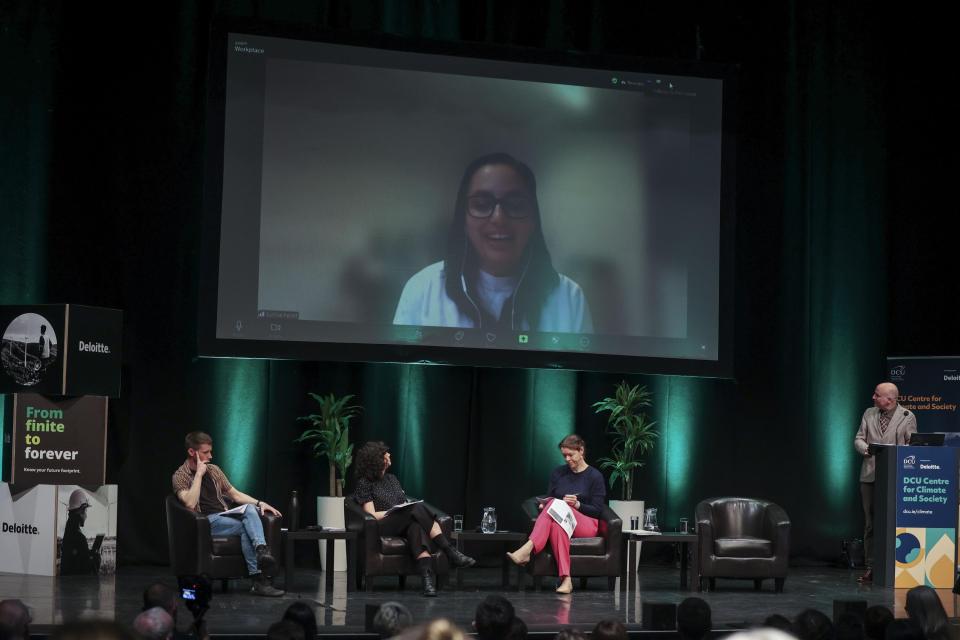
Sushila Pandit, University of Kent, joining remotely
Sushila Pandit, PhD Candidate, School of Politics and International Relations, University of Kent, UK also drew attention to the challenges that climate justice poses for policymakers and highlighted the power dynamics that influence much of climate policymaking. She noted the need to consider "who is defining the policy and how the problem is being articulated". She explained that "sometimes the idea [of climate justice] is shaped internationally, but that this misses out on the locally led initiatives". Sushila ended her talk with a call to diffuse and decolonise climate action.
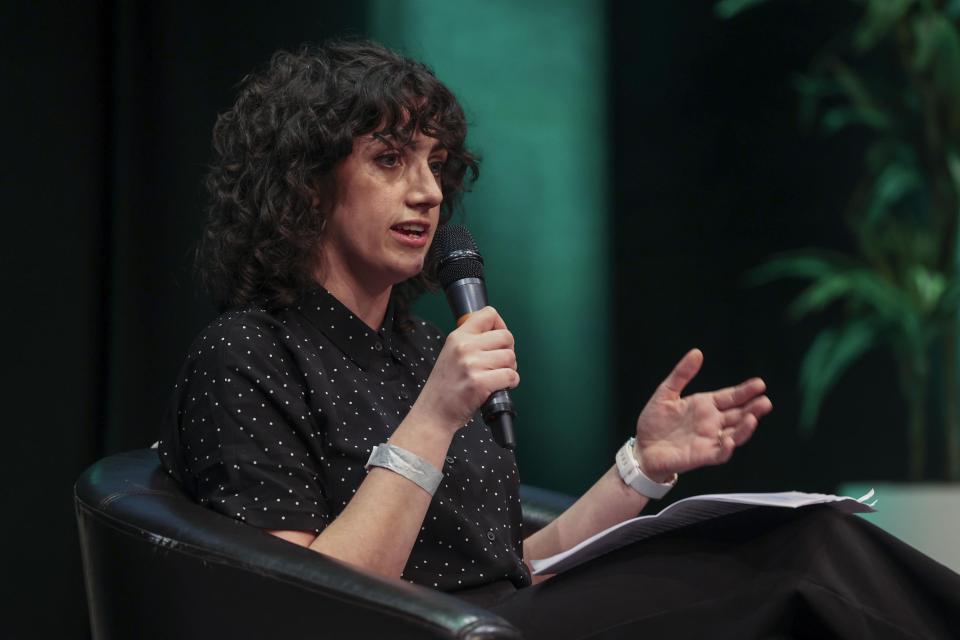
Róisín Greaney, TASC
Róisín Greaney, Researcher and Community Engagement Coordinator – Climate Justice, TASC, reflected on the many different types of social inequalities that are embedded in climate justice, including wealth inequality and access to decision-making. She asked us to consider how we can use the current focus on green transition, and the unprecedented levels of public funding, to reduce social inequality, reconsider structural inequities, and create a fairer society than we have now. Reflecting on her recent work with communities in Co. Clare, she said that there is a feeling that care work is undervalued and underpaid. She added that "we need to reconceptualise what we mean by green jobs…. to include caring for others and the environment".
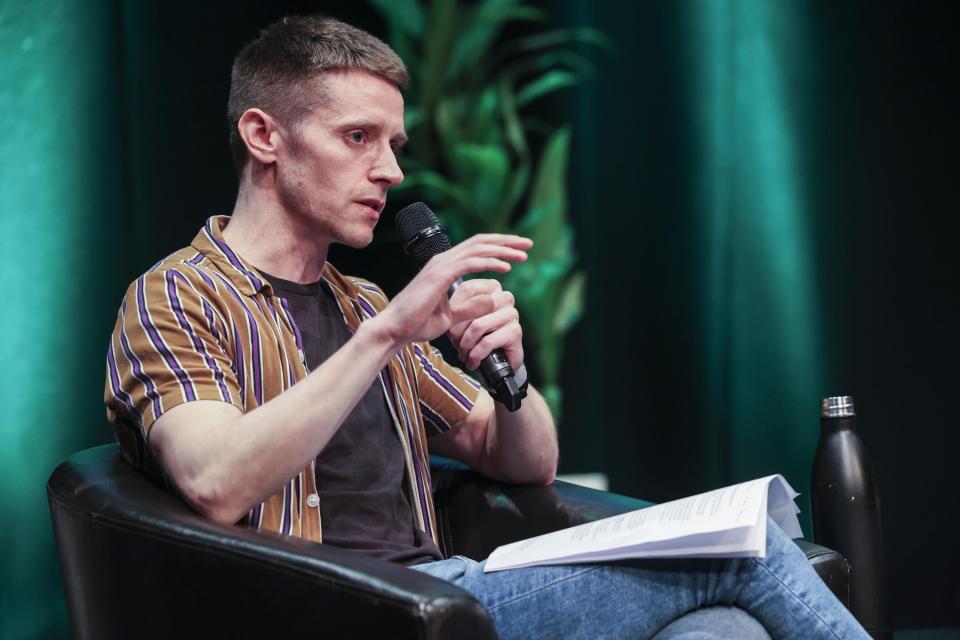
Dr Darren Clarke, DCU School of History and Geography
Dr Darren Clarke, Assistant Professor in Environmental Geography, DCU School of History and Geography, spoke passionately about the need to radically rethink how we measure GDP and current conceptions of well-being. He said "GDP creates a lot of the crises we are in, including the climate crisis. How can we have so many technological advances, but not be able to imagine a world outside of the current system?" He ended his comments by noting that most of us are not seeing the economic benefits of what a prosperous society should offer.
Keynote Address - Participants in Ireland’s Children and Young People’s Assembly on Biodiversity Loss
Dr Diarmuid Torney, introduced four participants of Ireland’s Children and Young People’s Assembly on Biodiversity Loss, Niamh, Laura, Conor and Ailidh, who spoke about their experiences of taking part in the Assembly and their hopes for more ambition on biodiversity action in Ireland. The recording of their keynote can be viewed can be viewed here.
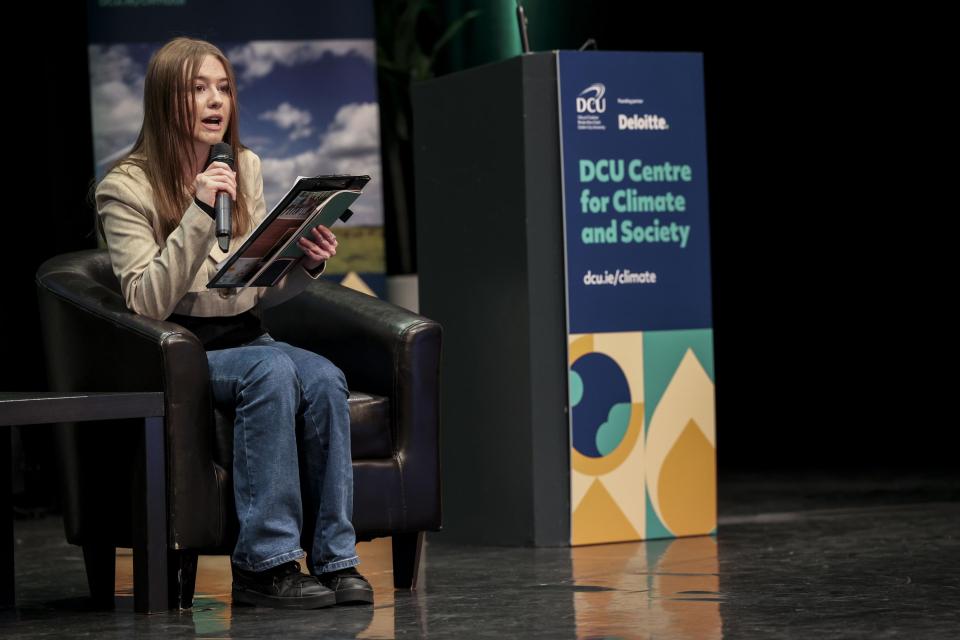
Niamh
Niamh, a Young Advisor with the Assembly, began by reflecting on the importance of the Assembly. She said that the inclusion of young peoples’ voices from the beginning to the end of the process was key as this meant that their involvement was not simply tokenistic. She said "young people are the future, and their voices need to be heard and implemented. Young people must be made to feel that they are part of the democratic process".
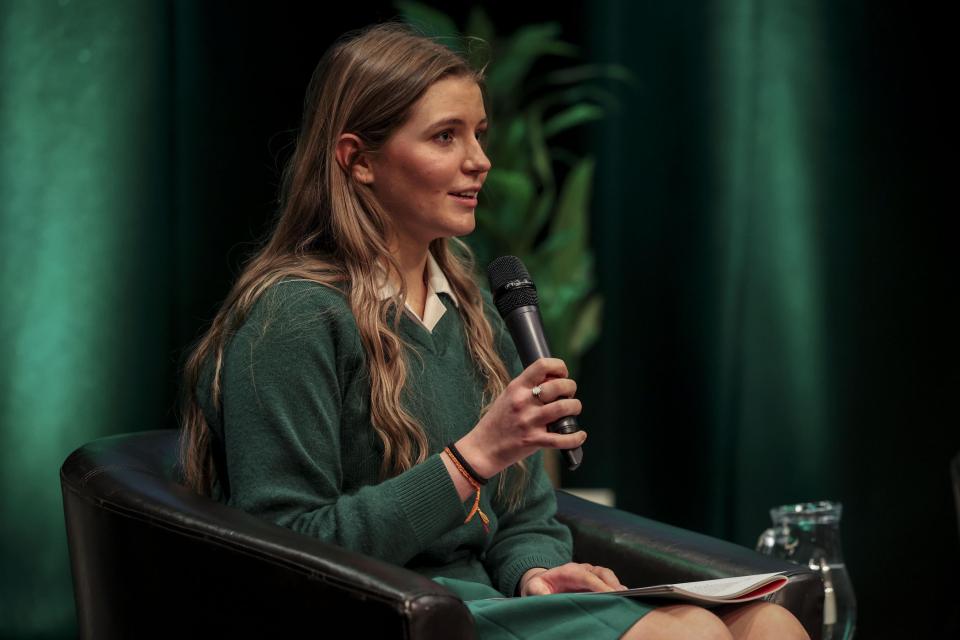
Laura
Laura, a member of the Assembly, said that "unfortunately, young people don't always have the opportunity to speak up, although I feel that young people and children are those with the most wild and wonderful and creative ideas in how we can move towards saving our planet from a climate crisis". She also said that young people are “often referred to as the voices of the future. However, I feel as well as that, we must be the voices of the present.”
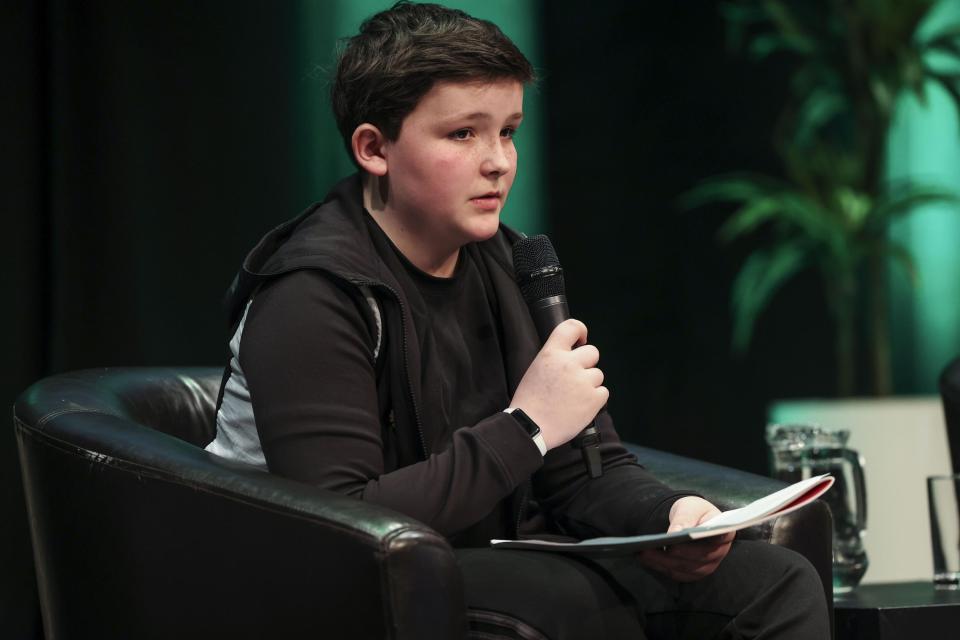
Conor
Conor spoke about feeling empowered by his involvement in the process and the “overwhelming sense of pride” he experienced as a result. He said, "children have a unique way of thinking. Introducing children’s views provides a whole new strand of options that can help to address the biodiversity crisis". He added that “if adults make the choices for us, for our future, that’s not how we want it, because we are going to be the ones living in the future and we have to deal with the consequences if they make a bad decision.”
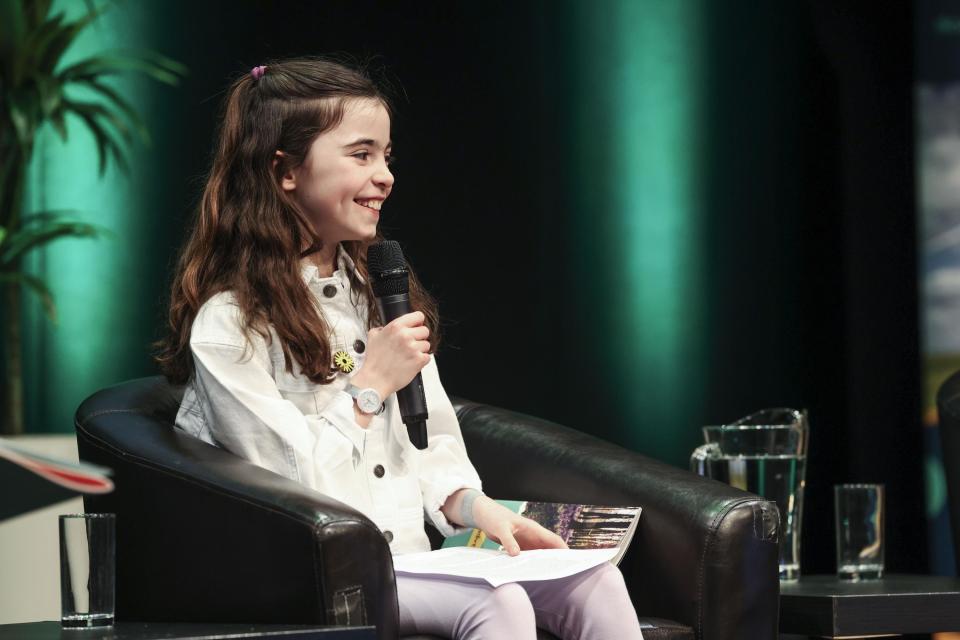
Ailidh
Ailidh spoke about the importance of education rooted in, and around, nature as opposed to mediated approaches such as watching a video. She said the experience of learning while in nature was crucial because “if you’re in nature, it’s real. You can see all the animals and plants and wildlife and you can see the seasons changing. But you can also see the litter and you can also see all those trees that have been cut down. And you think ‘do you know what? I just need to change this a bit’.” She added that “adults think about the obstacles while kids think about ways around them.” She hoped that going forward every decision would take biodiversity into account.
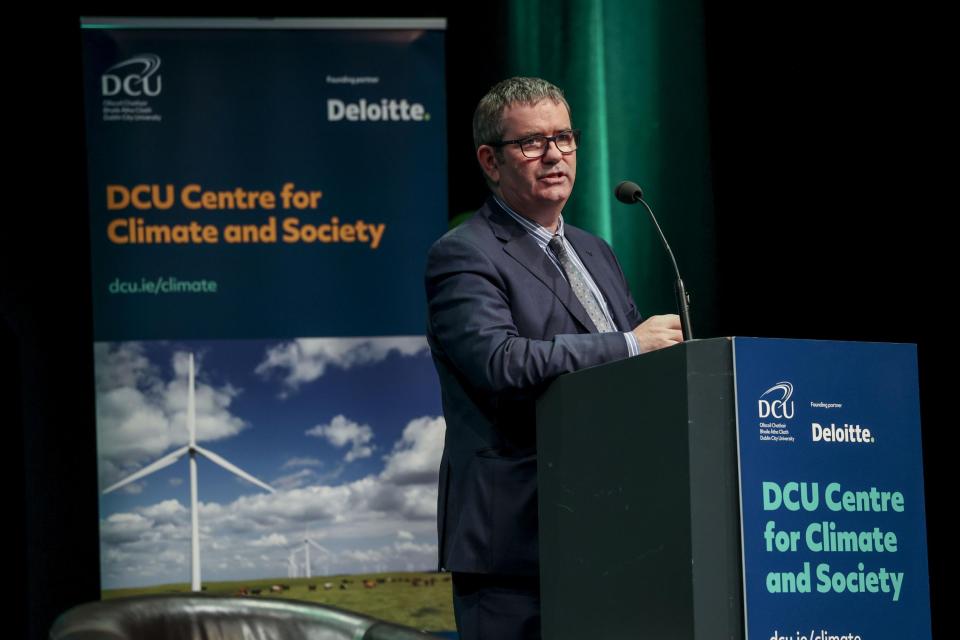
Professor Derek Hand, Executive Dean of the DCU Faculty of Humanities and Social Sciences
Professor Derek Hand, Executive Dean, DCU Faculty of Humanities and Social Sciences introduced keynote speaker, Ella Saltmarshe. He spoke of the importance of the arts in engaging people with climate change and how it can shed new light on our interactions with nature.
Keynote Address - Ella Saltmarshe
The recording of the keynote address by Ella Saltmarshe can be viewed here.
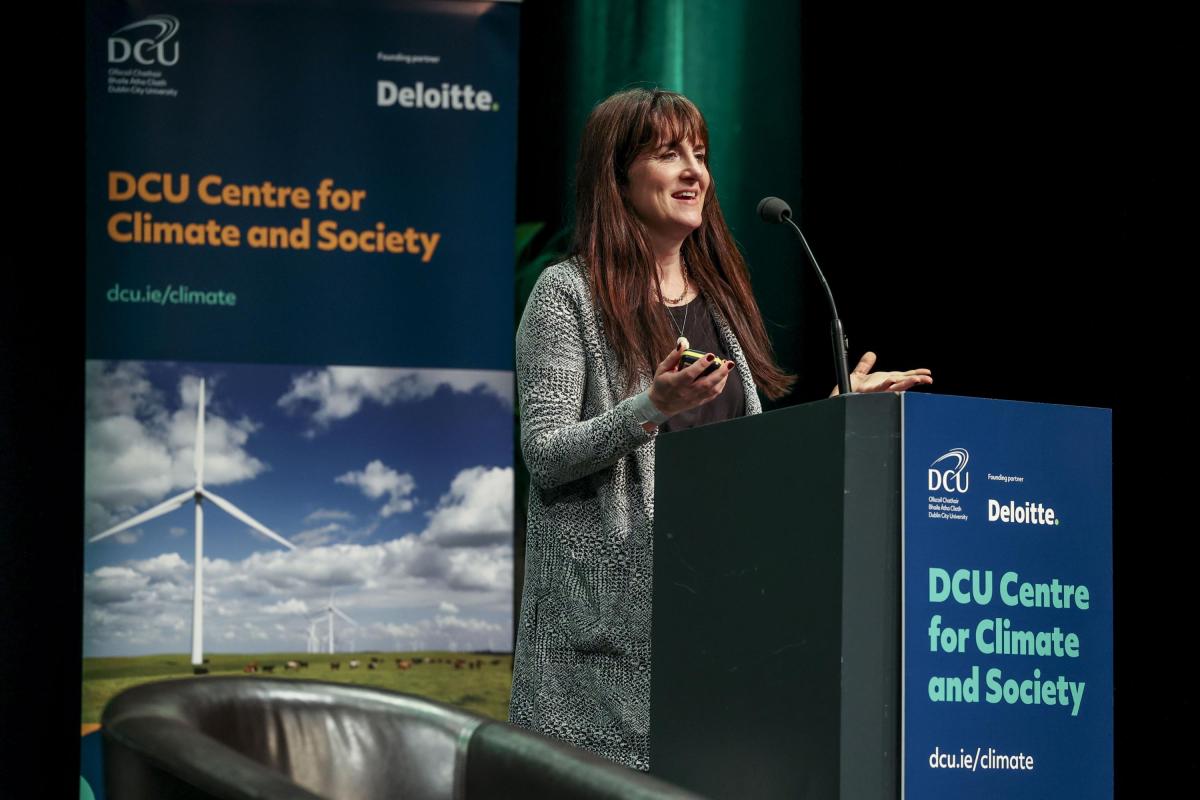
Ella Saltmarshe, Co-Founder of The Long Time Project, gave a wide ranging talk on how we can be better ancestors, perspectives on intergenerational justice, and the concept of deep time. During her talk she took the audience through a number of thought exercises including a high intensity workout and an exercise to imagine seven generations as an approach to building intergenerational empathy.
Ella explained the concept of ‘deep time’ and how it can help us to experience a stronger connection to the beauty and improbability of life, as well as heightening a much-needed sense of outrage about not protecting nature. She said, “ultimately, we cannot be good ancestors and live in a system that perpetuates injustice. This work is inherently revolutionary, it’s about shifting the structures we live in.”
Panel 2 – How can the business world embrace a long-term perspective in its decision-making?
The recording of Panel 2 can be viewed here. The panel was chaired by Dr Aideen O'Dochartaigh, Centre member and Assistant Professor in Accounting, DCU Business School.
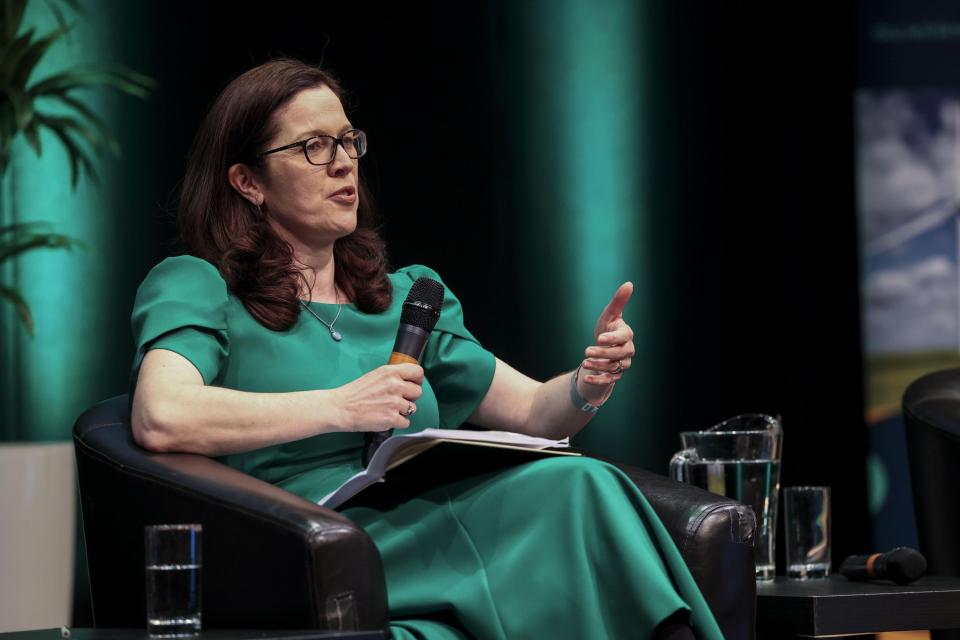
Bernadette Phelan, Business in the Community
Bernadette Phelan, Head of Advisory Services, Business in the Community Ireland (BiTC), was optimistic that sustainability is already mainstream in businesses and highlighted that her organisation is now focused on developing the leadership mindset, exploring what business value is in that context, as well as implementing new models of stakeholder engagement. Reflecting on a theme from the morning, she also spoke about the need for brave leadership, praised those with the courage to make decisions which entail difficult trade-offs, and that we needed to move much faster.
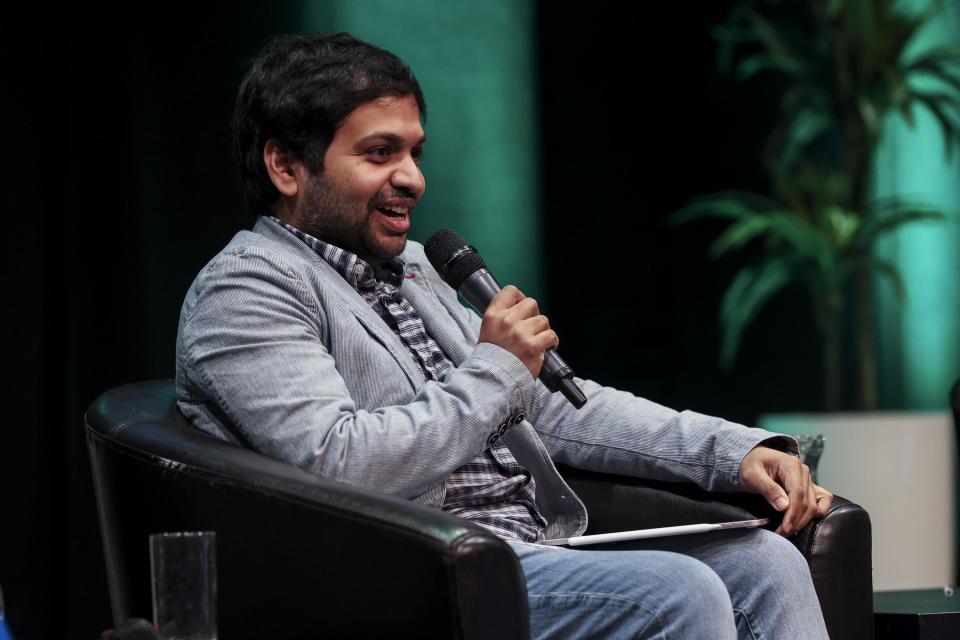
Dr Sriteja Reddy Wudaru, DCU Business School
Dr Sriteja Reddy Wudaru, Assistant Professor in Sustainable Innovation, DCU Business School, also spoke about business and sustainability. He argued that while the conventional view is that chasing profits will achieve sustainability naturally, unfortunately, this is not the reality. He said, "we are seeing companies resort to unsustainable practices to maximise profits". Reflecting on these points, he concluded that business can future proof supply chains and collaborate with non-profits to develop mitigation solutions.
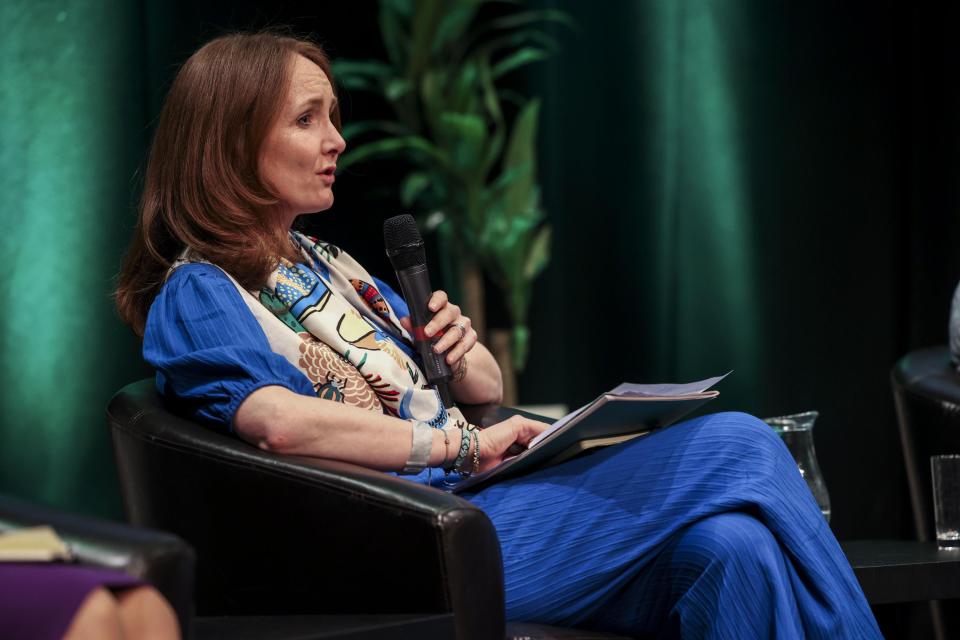
Aoife Connaughton, Deloitte Ireland
Aoife Connaughton, Director, Sustainability and Climate, Deloitte Ireland, highlighted that the business sector is currently concerned about the need for transparency around sustainability. She noted that business are asking for help and advice on these issues and described how reporting requirements actually help to drive progress.
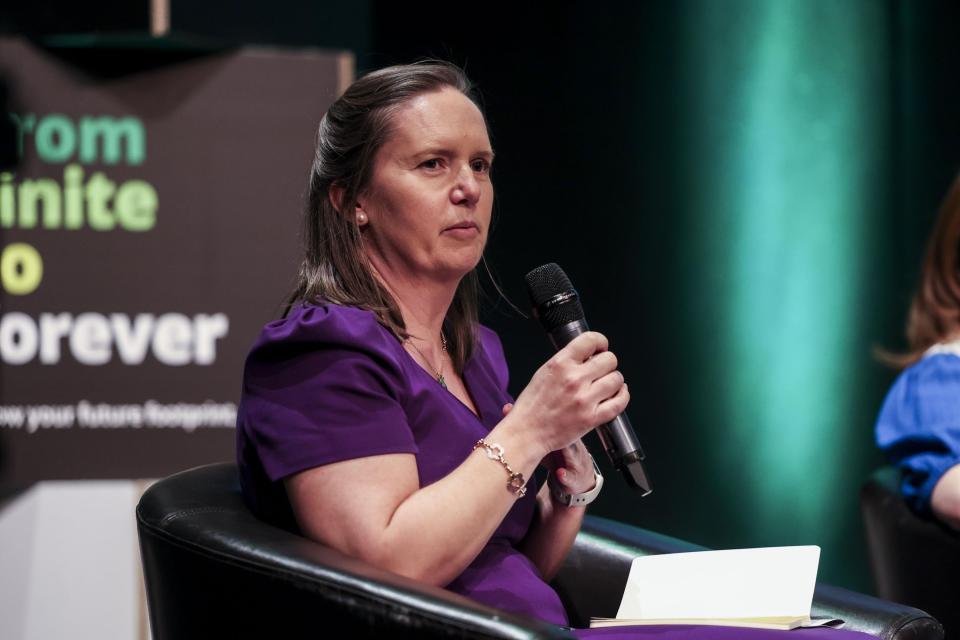
Karen Doyle, Gas Networks Ireland
Karen Doyle, Head of Business Development, Gas Networks Ireland (GNI), described how GNI are pushing for policy change and asking their members for transition plans. She also spoke about the technological solutions currently being considered in GNI. She said that they already think in long-term horizons and are looking for ways to take fossil fuel out of the network by replacing it with sustainable gas such as biomethane. She said that this will allow communities to engage and is a circular economy approach. She also said that GNI are working on a hydrogen strategy that will help use ‘waste’ electricity.
Panel 3 – Climate journalism: Newsroom time vs geological time
The recording of Panel 3 can be viewed here. The panel was chaired by Dr Trish Morgan, Centre member and Assistant Professor in the DCU School of Communications.
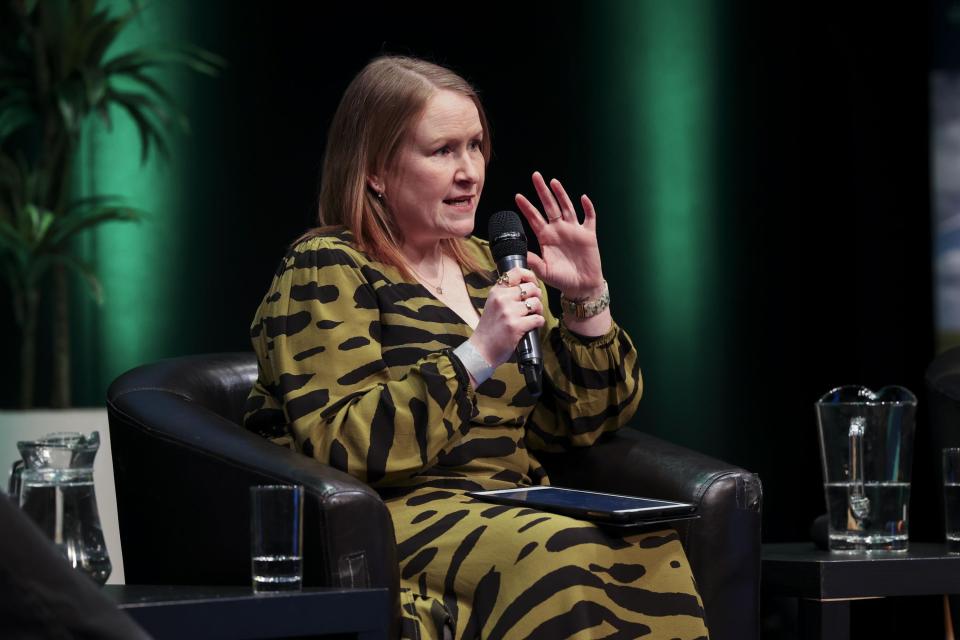
Shauna Corr, Reach Ireland
Shauna Corr, Environment Correspondent, Reach Ireland, spoke about the dissonance between our knowledge of the urgency of the climate crisis and our failure to respond as if it was an emergency. She repeated a recent quote from the UNFCCC that said we have two years to save the world. Despite this, she recognised that there has been significant progress in terms of changing public attitudes towards climate change as well as increasing news coverage of pollution, mining, and sand extraction. As a result, she argued that journalism has moved climate change from a niche issue to the centre of public discussion. However, she also highlighted the negative effects of social media and the major impact that Big Tech and platforms have had on the spread of mis- and dis-information. Reflecting on the current moment for journalism, she said "we have come a long way, but there is a lot more to do, and government needs to play a bigger role".
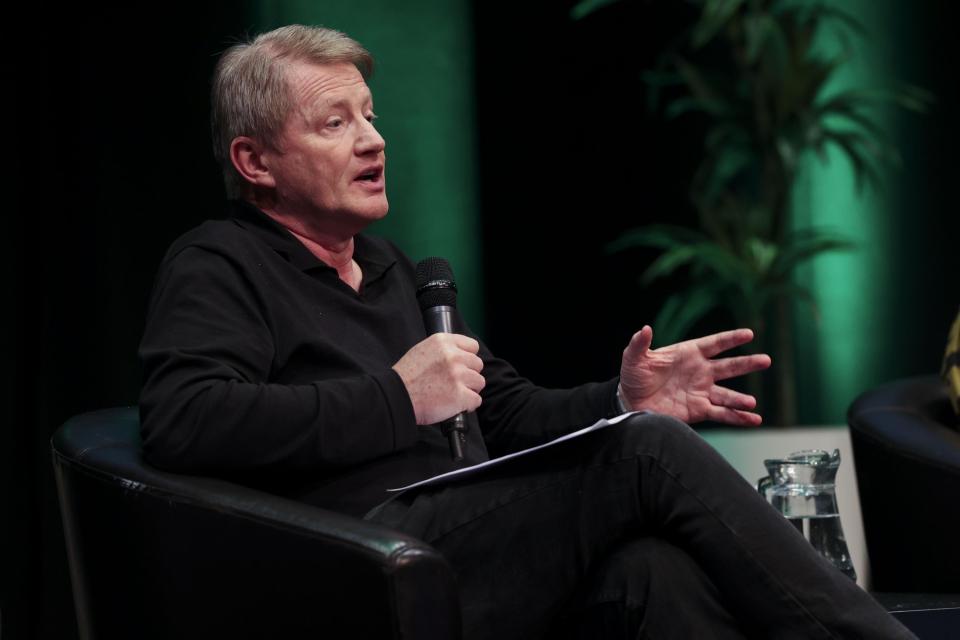
John Gibbons, Environmental journalist and commentator
John Gibbons, environmental journalist and commentator, began by acknowledging the great work of climate journalists, but highlighted that only a tiny fragment of media resources is being thrown at climate crisis issues. He said that newsrooms should be "throwing teams of reporters at the climate issue" because of our failure to stem carbon emissions. He also cited research by Dochas, the international development and humanitarian network, that found only 14% of Irish people believe that climate change will impact them personally. He said, "that means that 6 out of 7 people think it won’t have an impact" and that "many of them work in newsrooms".
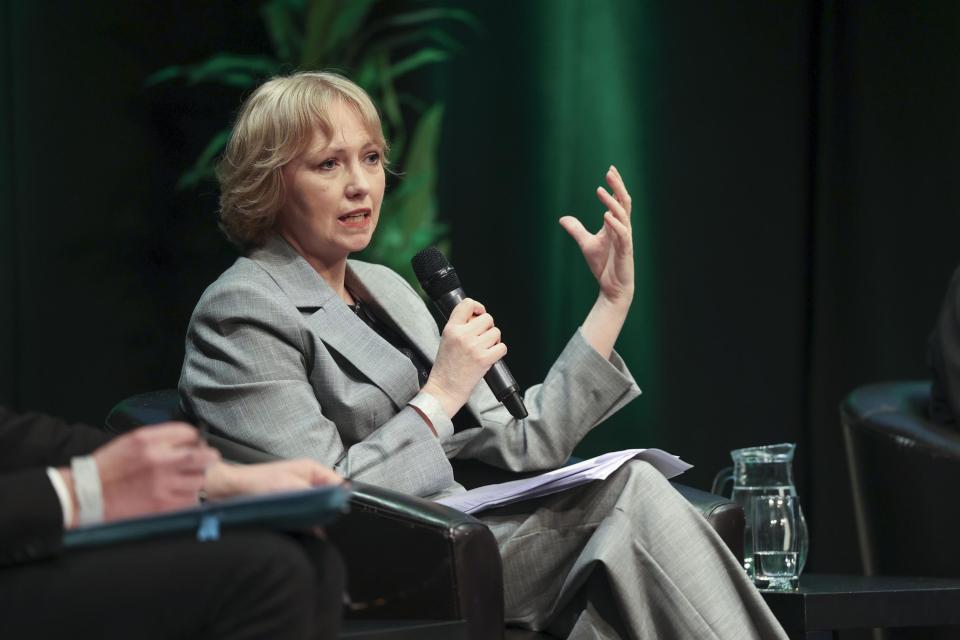
Sinéad Crowley, Director of Media Development, Coimisiún na Meán
Sinéad Crowley, Director of Media Development at Coimisiún na Meán, spoke about how the media landscape has changed over the course of her career. She highlighted that the new media commission funds climate change content and sees telling the climate story as central to their work. She cited the Ours to Protect project which enabled local radio stations to produce climate stories on energy, travel, food, waste, and the circular economy in order to increase climate literacy and build climate action at the local level. In conclusion, she said that while news moves quickly, there has to be a place for longer form journalism and more creative ways to tell the climate change story.
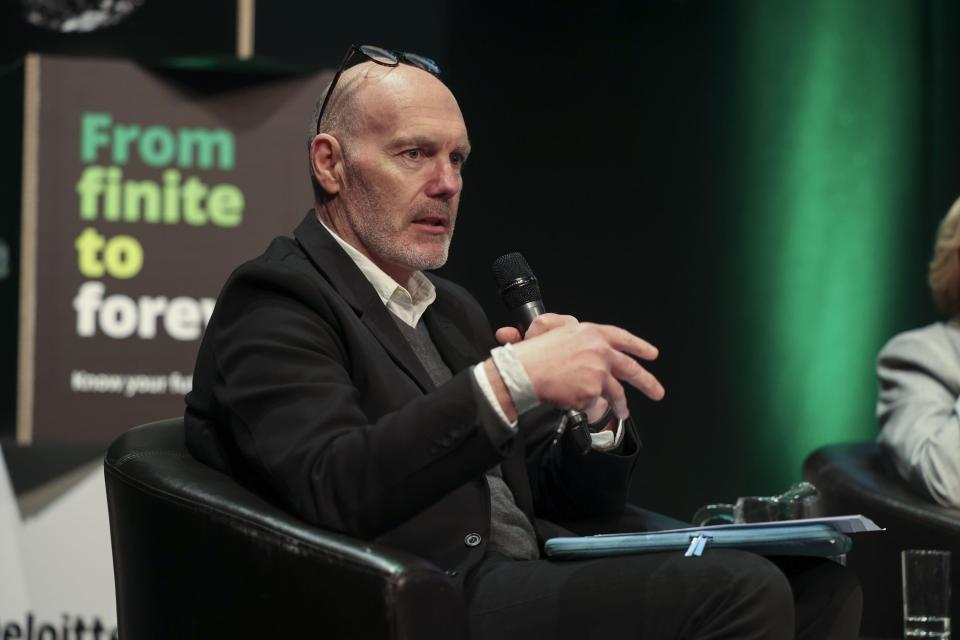
Dr David Robbins, DCU School of Communications
Dr David Robbins, Centre for Climate and Society Co-Director and Associate Professor, DCU School of Communications, highlighted that business-as-usual was no longer going to work in journalism. He said, "time is the enemy of good journalism" and that journalists are trained to get all the news into the start of a report and as a result, the context is further down the news item. However, the context is the story with climate change and journalists need to bring that into their reporting more often and earlier. As a result, he concluded that "we need slower journalism and longer form journalism" and called for more journalism aimed at climate advocacy and focusing on the context.
